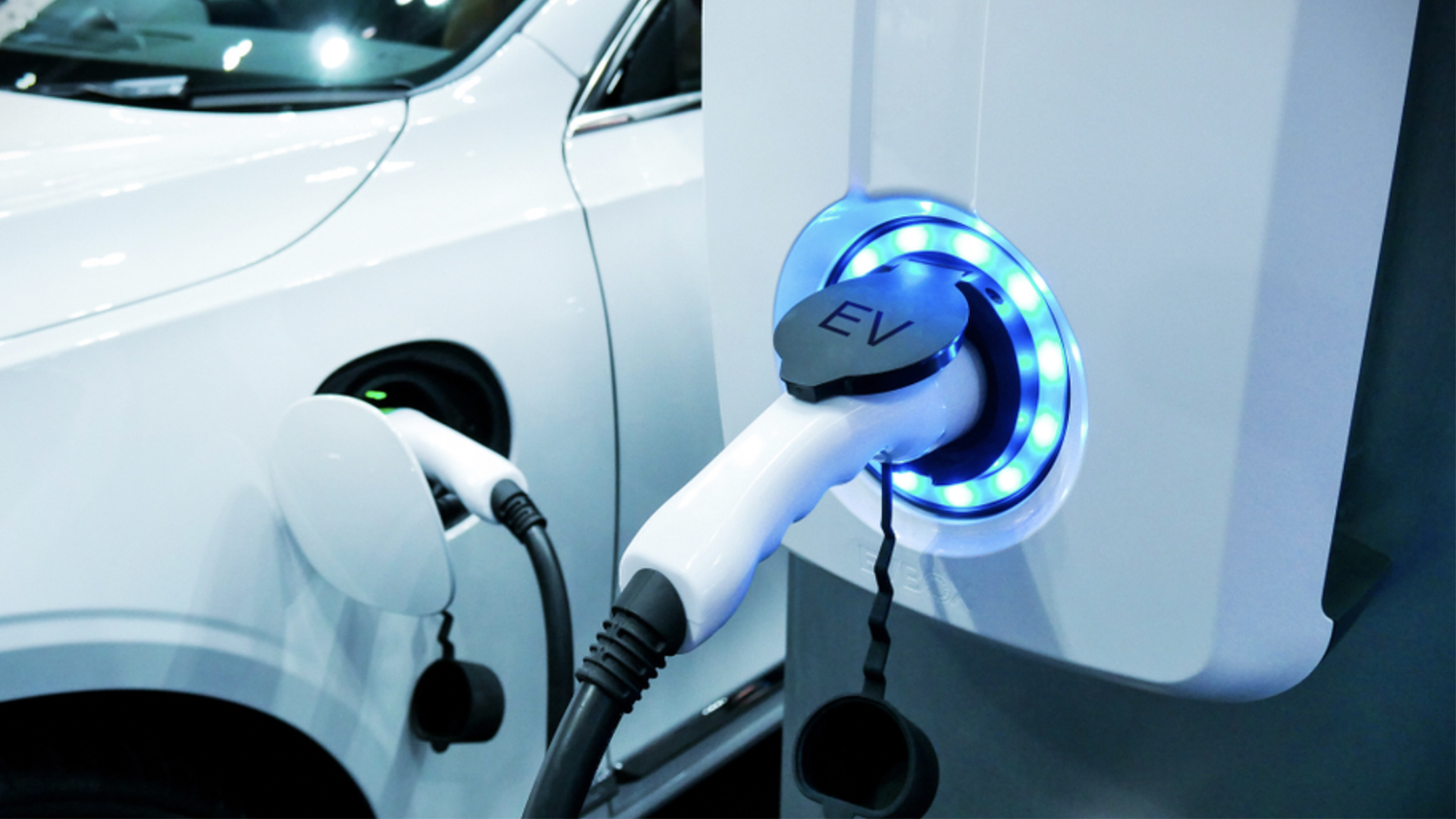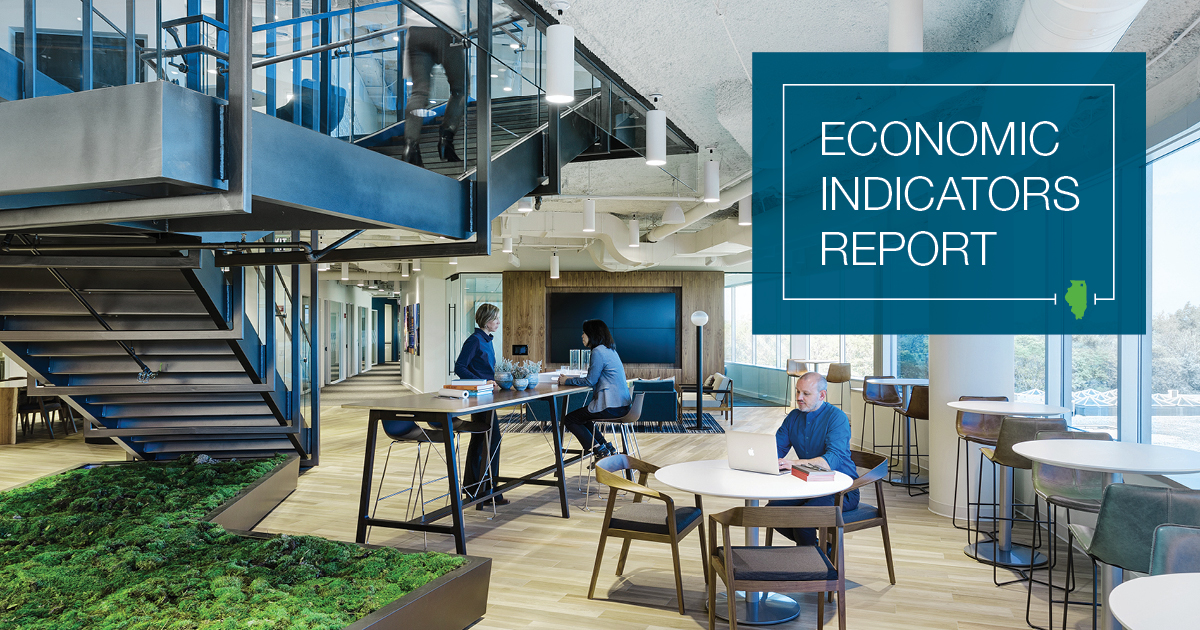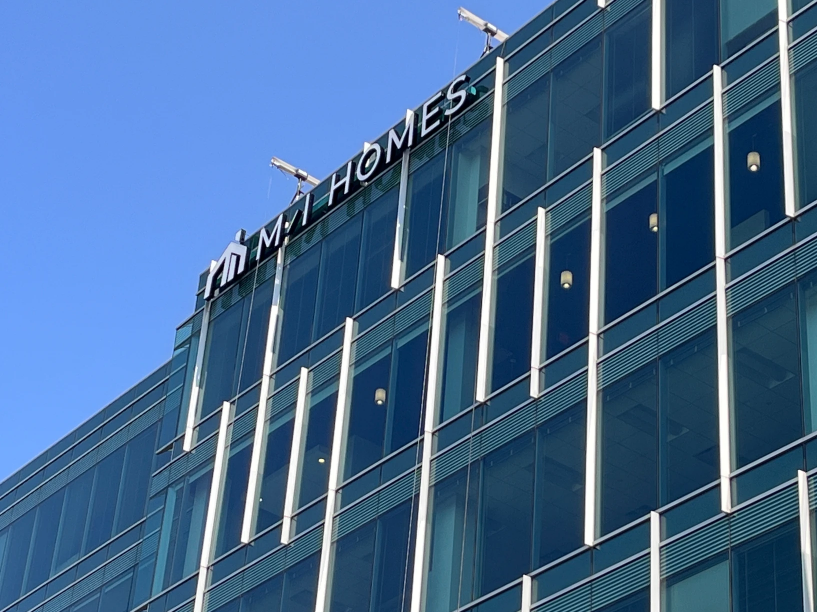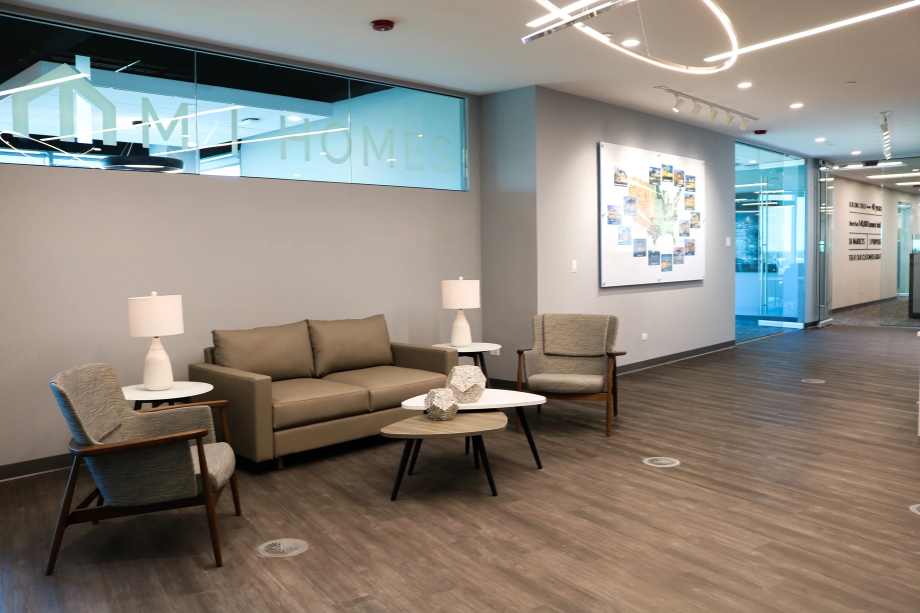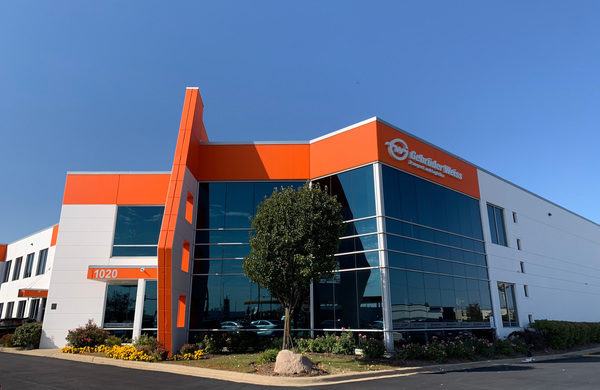Northern Illinois has long been a leader of science, technology and advanced manufacturing. Now, those fields are coming together to drive the region’s electric-vehicle (EV) ecosystem—a growing network of communities, manufacturers, institutions and suppliers dedicated to all things EV.
The result is a win-win: an influx of jobs and investment for the region and an emerging powerhouse committed to building the future of sustainable technology.
Charged Up: Welcome to the EV Ecosystem
Governments and businesses around the world have committed to reducing carbon emissions and investing in more sustainable technologies. That includes Illinois, where the Climate and Equitable Jobs Act has the state on the road to 100% clean energy by 2045.
To deliver on these commitments and create a cleaner, more sustainable future, communities must reduce their reliance on fossil fuel-burning automotives. (The EPA estimates that transportation accounts for about 27% of U.S. emissions.) That means alternatives, such as EVs, must be made widely available.
While a small portion of Americans currently drive electric vehicles, making EVs affordable and available to the majority of the country will require mass production, as well as investments in a new infrastructure to support EVs and advancements in the technologies that power them. EVs are coming, but first we must solve a massive logistical puzzle.
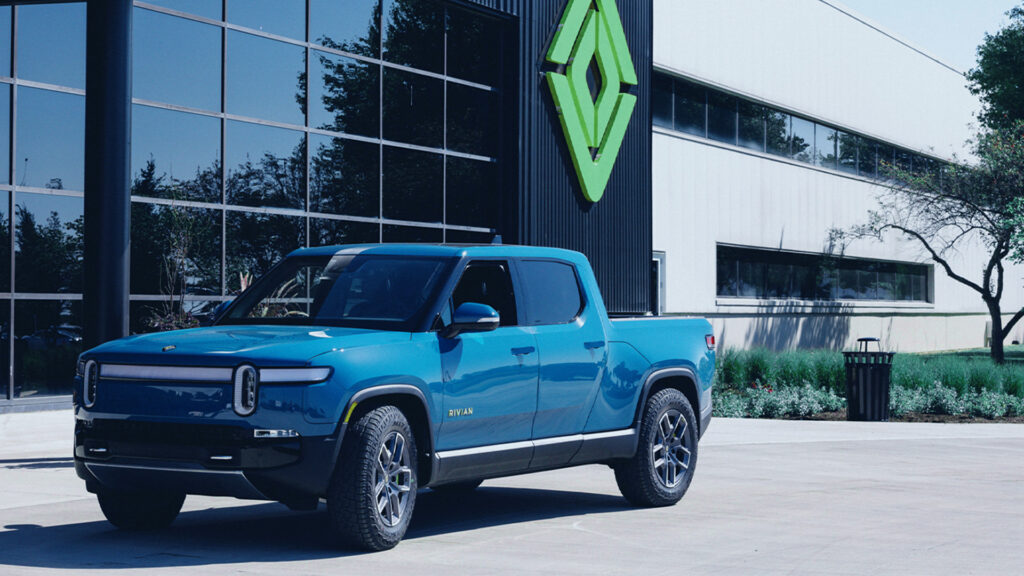
That’s exactly what’s happening in Illinois, where an ‘EV ecosystem’ has emerged to fuel the development and production of EVs. This ecosystem consists of six major factors:
- The regional supply chain, including businesses that manufacture EVs, batteries, semiconductors and other related technologies. Illinois is the fourth-largest auto employment base in the U.S., the #2 location for battery manufacturers, and #4 in number of locations that manufacture non-battery EV components.
- The policies that support EV-related investments, including subsidies, rebates and incentives through the Illinois Climate and Equitable Jobs Act and the Reimagining Electric Vehicles Act. In Illinois, there are currently more than $70 million in capital funds earmarked for EV infrastructure projects.
- The research institutions that advance the economic and scientific development of the EV field. Two of the 17 U.S. Department of Energy National Laboratories are located in the heart of Northern Illinois, DuPage County: Argonne and Fermilab. Argonne alone receives $1 billion in annual funding to advance U.S. battery research and manufacturing, as well as research into the EV-adjacent fields of semiconductors, material science, transportation systems, grid stability and security, clean energy generation, supply chain security, quantum computing and AI.
- The diverse talent pipeline that makes all of this possible. Home to some of the nation’s top engineering and IT and computer-science schools, Illinois’ EV workforce is projected to increase by 83% by 2024.
- A central location that enables mass distribution of EV products across North America. Northern Illinois is located in the middle of one of the world’s most connected rail networks and is home to several international airports and a robust system of navigable waterways.
- Strong local demand for EVs. Illinois is already home to 54,000 EV drivers and thousands of charging stations. That consumer base continues to grow as local drivers, communities and transportation organizations go electric.
On their own, each factor is critical. But it’s their unique combination that has made Northern Illinois a global hub for the EV industry, and businesses are taking notice.
Bumper to Bumper
While the rise of Illinois’ EV ecosystem can be traced to the region’s rich history of automotive production, the industry shifted into overdrive with the arrival of EV manufacturer Rivian.
In 2016, Rivian’s leadership team visited a shuttered Mitsubishi factory in Normal, Illinois. They were there to purchase equipment. However, once they arrived in Illinois and took stock of the region’s workforce and pro-business policies, they changed course and purchased the plant. With backing from investors including Amazon, Ford and Cox Automotive, Rivian expanded their Illinois operations and went public in November 2021. Today, the company employs 3,700 workers and is one of the world’s biggest EV producers.
Attracting Rivian was itself a big win for the Illinois EV industry, but it was only the beginning.
In 2021, as Rivian’s first electric truck rolled off the assembly line, Canadian manufacturer Lion Electric Company announced that it had selected Joliet in Will County, Illinois as the site of its U.S. manufacturing facility. When production begins in late 2022, Lion’s 900,000-square-foot facility will produce up to 20,000 zero-emission buses and trucks each year.
These vehicles will be essential to helping communities across the country decarbonize transportation systems. Their production, meanwhile, will bring more than 1,400 jobs and over $130 million to Joliet.
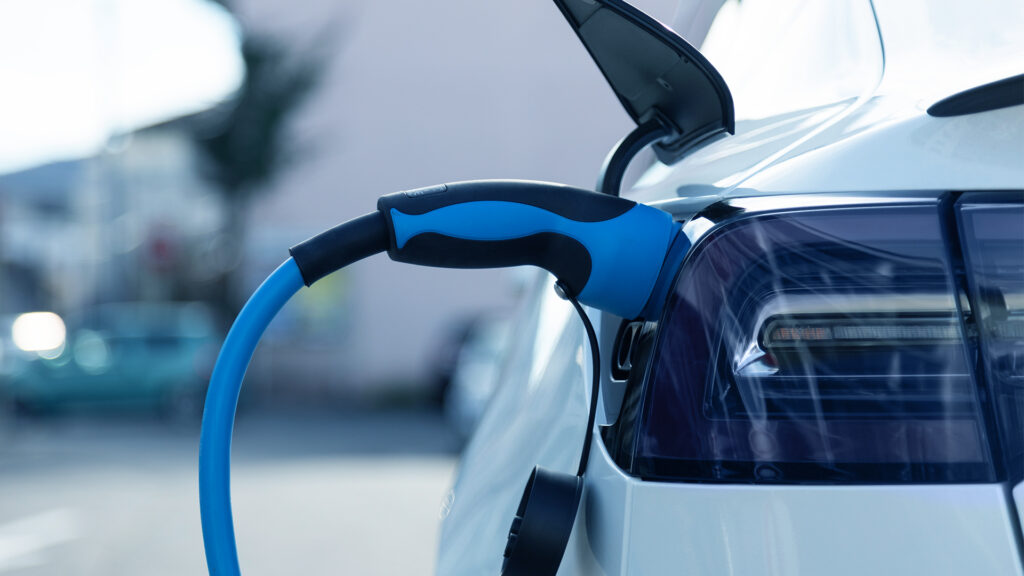
Next in line was Merkur, a manufacturing performance and product-development firm. They opened a new office in DuPage County, Illinois to be closer to Lion and the regional EV ecosystem.
“We want to be where our customers are; it’s as simple as that,” said Jonathan Levesque, Director of Business Development and USA Market at Merkur.
“Northern Illinois has several key advantages for us. It’s a major hub for the industries we serve: transportation, manufacturing, aeronautics and agri-food. Plus, its central location and international airports make it easy for us to reach clients and suppliers across the country and around the world. When our client Lion moved here, it was an easy decision to open an office in Downers Grove.”
“What I love about this story is that it shows how attracting the right business brings more businesses,” said Doug Pryor, President & CEO of the Will County Center for Economic Development.
“First there was Rivian, then Lion, then Merkur. Now, we have more companies in EV and related sectors looking to invest. It’s all because of regional collaboration; working together, we made a strong cluster to support future economic growth. We created the conditions that allow these businesses to thrive.”
Fueling the Movement
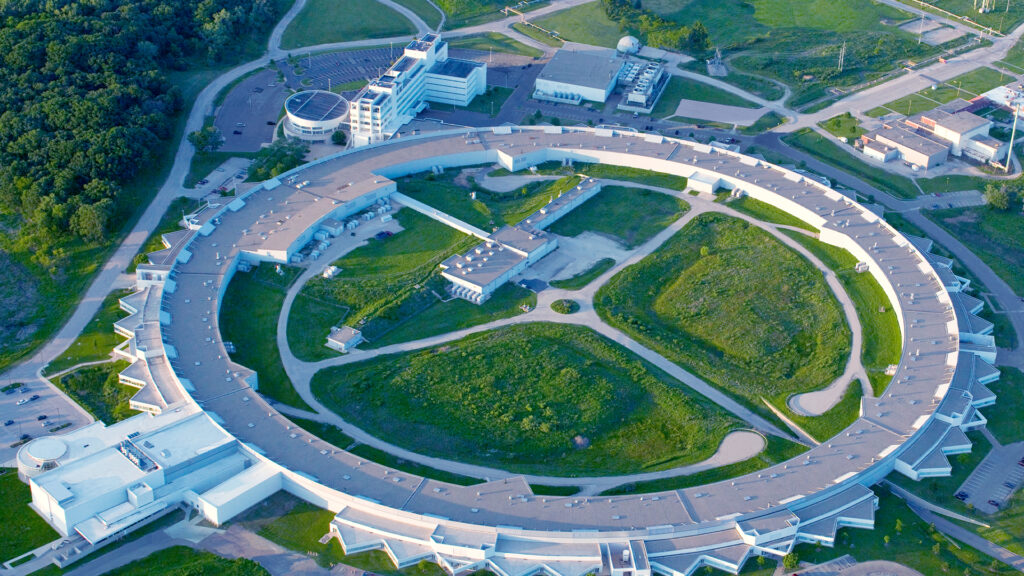
A short drive from Merkur and Lion – you could easily visit all three on a single charge – is Argonne National Laboratory. One of 17 U.S. Department of Energy National Laboratories (and one of two in DuPage County), Argonne is approaching the challenge of building an EV infrastructure on multiple fronts.
The first is economic. There are currently about 52,000 public charging stations across the U.S. That might sound impressive, but to meet growing demand and facilitate the widespread use of EVs, the country must build hundreds of thousands more.
The good news is that there is a large pool of federal funding – $5 billion from the Bipartisan Infrastructure Law – marked for new charging stations. However, to access this funding, states must first demonstrate the potential economic benefits of new stations.
Identifying and gathering the right data can be difficult. That’s why scientists at Argonne developed a free online tool (JOBS EVSE) to help states estimate the economic impact of charging stations. Using the tool, state representatives and others can determine the cost of installing and maintaining new stations. They can compare that cost to the total value in sales that the stations are projected to generate, as well as the estimated number of jobs that will be produced during construction and management.
The Consumer Angle
While Argonne is helping states access funding to build charging stations, they are also working to help electric vehicle drivers of the future spend less time at the (electric) pump.
Currently, a pit stop at a charging station can take 30 minutes or more, much longer than it takes to pump gas. Scientists at Argonne are working to narrow that gap. In partnership with several other national laboratories, they are developing batteries and charging technologies designed to speed-up recharging to 15 minutes or less, while enabling batteries to hold higher densities of energy for longer charges.
Faster charging and longer battery life are more than just convenient. Shorter lines at the pumps enable widespread adoption of EVs, while faster charging makes electric trucks more feasible for the fast-moving supply chain.
“I think it’s fair to say that every car company views fast charging as the ‘killer app,’” said Venkat Srinivasan, director of the Argonne Collaborative Center for Energy Storage Science (ACCESS) in a recent post on Argonne’s website. “We are reaching a stage where electric cars and trucks must charge fast — it’s not a nice-to-have.”
Meanwhile, another DuPage County organization, ComEd, is also approaching the EV challenge from a consumer angle. Buying an electric vehicle for the first time can be intimidating. To make the process more approachable, ComEd recently released the EV Toolkit, a digital resource that provides helpful information on savings, benefits and incentives for consumers purchasing EVs, as well as an overview of EV brands and models, rate options and charging locations.
“Mass consumer education is critical,” said Jennifer Morand, Co-President of the Chicago Automobile Trade Association in a ComEd press release. “The EV customers of yesterday can’t be compared to today’s EV buyer, which is why resources like ComEd’s EV Toolkit are pivotal for this next phase of EV adoption.”
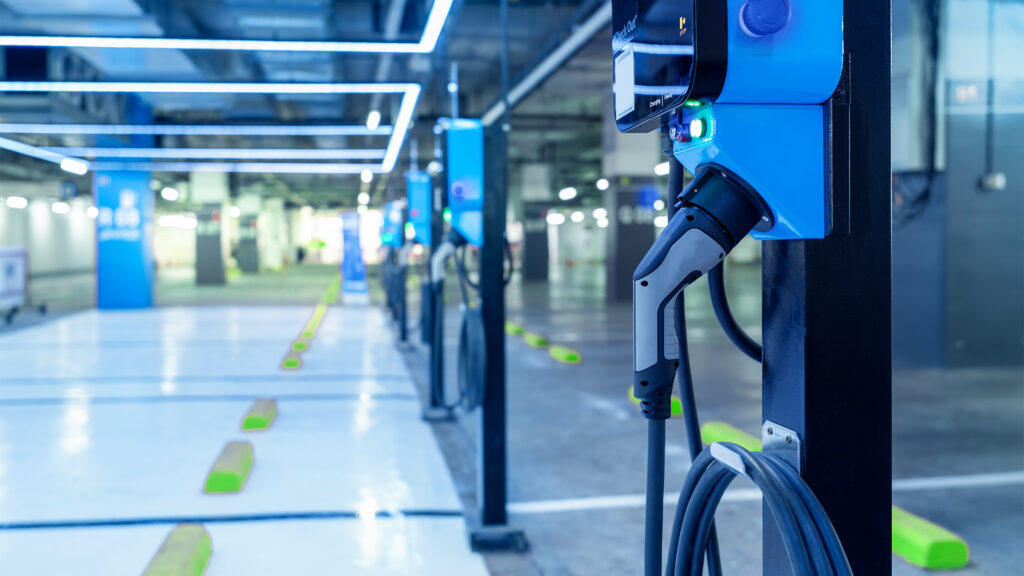
Supercharged: The Future of EVs in Northern Illinois
Give it a few years, and you could be riding a bus manufactured by Lion Electric in Joliet, produced under the guidance of Merkur in Downers Grove, powered by a battery using technology developed at Argonne, and built using parts sourced from suppliers across the region.
That’s the vision of Northern Illinois’ EV ecosystem: to create a diverse and comprehensive regional supply chain, where producers can source nearly all of their supplies locally. For the region, that would mean more jobs and a more stable and efficient supply chain, while generating tax revenue for local communities.
While the Northern Illinois EV ecosystem has already begun to achieve this vision, there is still room to grow.
In particular, there is a high demand for regional producers of batteries and semiconductors. Today, batteries, the most valuable component of electric vehicles, are almost exclusively produced in China, Japan and Korea. (For comparison: in 2020, China had 93 battery-producing mega-factories. The U.S. had four.) Semiconductors, another essential component, are also widely produced overseas.
As a result, domestic EV manufacturers often must source essential components from overseas operations. As the global supply chain has become increasingly volatile, there have been numerous production delays, shortages and rising material costs.
Local, state and national governments are working to change that. New federal programs like CHIPS and the Science Bill offer semiconductor producers billions in subsidies to invest stateside. Meanwhile, Illinois is targeting battery and chip manufacturers through aggressive incentive programs, while communities across Northern Illinois continue to draw investors from across the supply chain to the region’s emerging electric vehicle ecosystem.
“Whether you’re making the vehicle itself, the battery, the chip, or the many other components that go into developing EVs and the EV infrastructure, we want you here,” said Greg Bedalov, President and CEO of Choose DuPage, the economic development organization of DuPage County.
“We have the workforce, the suppliers, the incentives and the location. Most importantly, we have the mindset. Our communities believe that sustainable technology is the key to a better future. We’re here to make it.”


